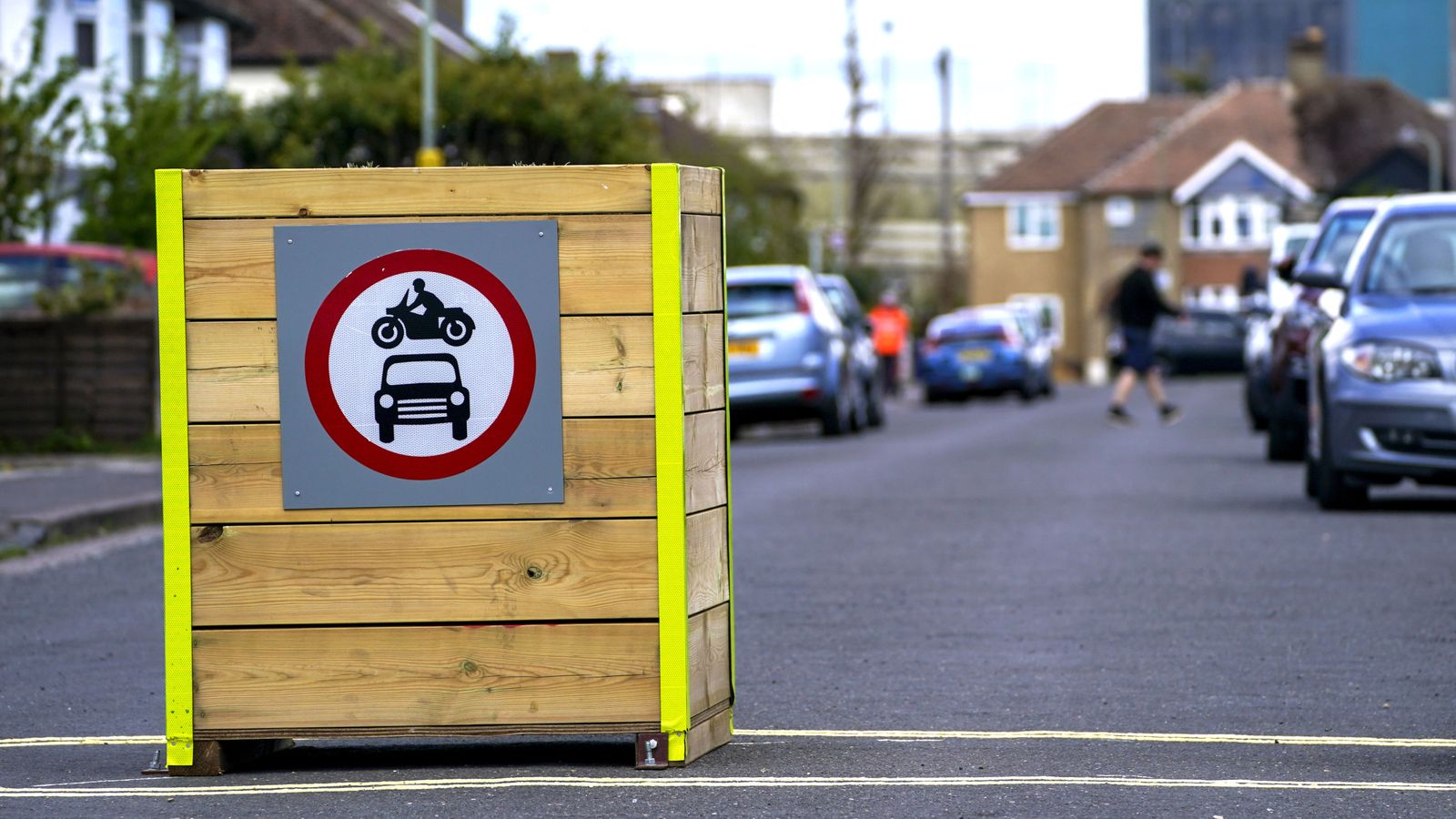How Wales’s Senedd came from ‘local authority-like’ to ‘fully-fledged parliament’ in 25 years | UK News
It’s 25 years since voters in Wales first elected members to the Welsh parliament.
Devolution expert Professor Laura McAllister told Sky News that a lot had changed in the quarter of a century since the Senedd‘s first election.
A referendum was held in 1997 to create the previously named Welsh Assembly, with 50.3% of voters backing its creation.
The inaugural election took place two years later on 6 May 1999.
Prof McAllister, from Cardiff University’s Welsh governance centre, said it had been a “rollercoaster ride” for Welsh devolution over the last quarter of a century – as plans look set to be approved to increase the number of members from 60 to 96.
The initial set-up was “very much like a local authority”, Prof McAllister said, but it had now become a “fully-fledged parliament with fiscal and financial powers”.
“I think Welsh devolution has changed more than any other devolved model of governance in the UK because it came from such a low base,” she added.
“At the very least the expansion of the Senedd to 96 [members] will make it fit for purpose.
“What the Senedd itself does, and the parties do with that, is the issue for debate. And they really need to take this seriously.”
‘Turnout remains low’
A further referendum was held in 2011, with 63.5% of voters supporting more powers for the Senedd.
But despite the changes in the last 25 years, challenges remain in terms of voter engagement.
“Turnout still remains low for Senedd elections, despite having had a quarter of a century of seeing what a Welsh government can or cannot do,” Professor McAllister added.
“We still have the same political party in power, and indeed Welsh Labour has been in power throughout the history of devolution, albeit sharing power at different times with different parties.”
The latest polling from Redfield and Wilton shows 55% of people in Wales support the Welsh parliament, while 32% think Wales shouldn’t have its own. 12% said they didn’t know.
The same polling shows 30% of Welsh voters would back independence for Wales, while 58% would oppose such a move.
Sky News sought the views of people on Welsh Street in the town of Chepstow, Monmouthshire.
Garry Davies said people in the area “don’t really know what goes on in the Senedd” and felt “left out”.
Duncan Farron said he was “not a fan” of devolution.
“I just think it’s another tier of government that we don’t need really,” he added.
But Leila Phillips, who works in education, said there were “advantages” to having policy areas devolved to Wales.
“There are advantages because Wales has gone through the new curriculum, which is really fantastic actually, and England is still lagging behind that. So there are advantages as well,” she said.
Read more from Sky News:
Calls for investigation into £200k Gething donation
Speed limit on some Welsh roads could return to 30mph
Prof McAllister points out that most people in Wales support the institution, even if they don’t agree with the decisions taken by the government of the day in Cardiff.
“The common ground is in the middle where people support devolution, they might not support what Welsh government does,” she said.
“[But] if people don’t support a Conservative government in Westminster, they don’t call for the abolition of the House of Lords and the House of Commons.”






